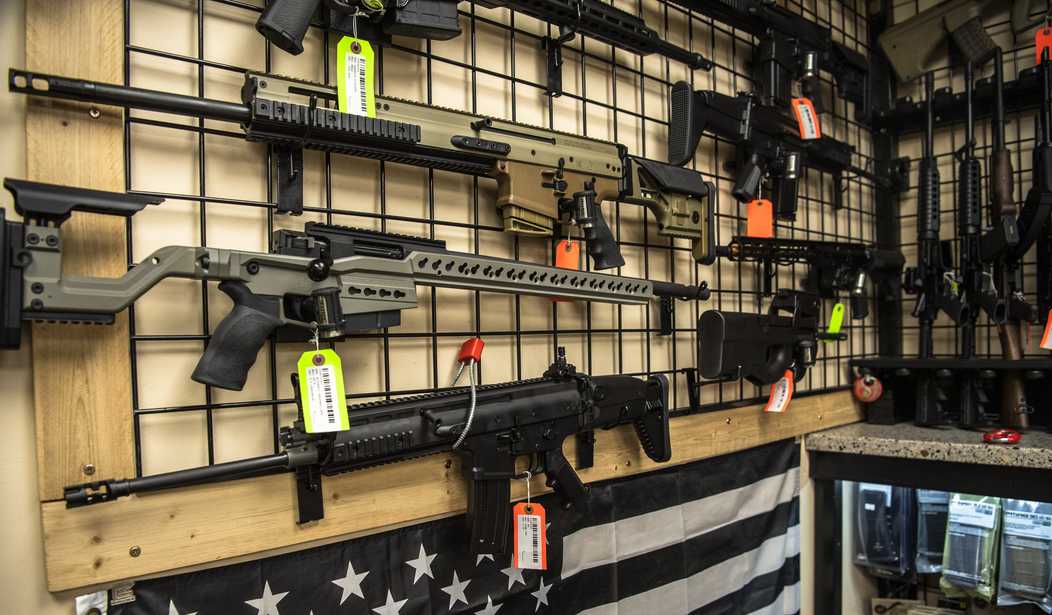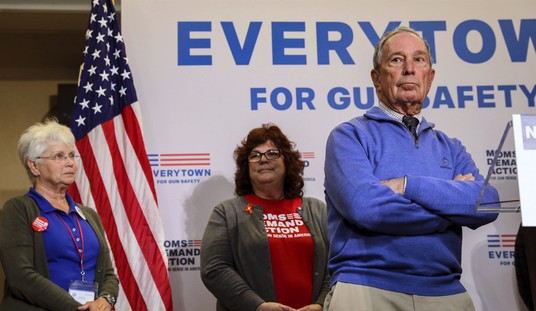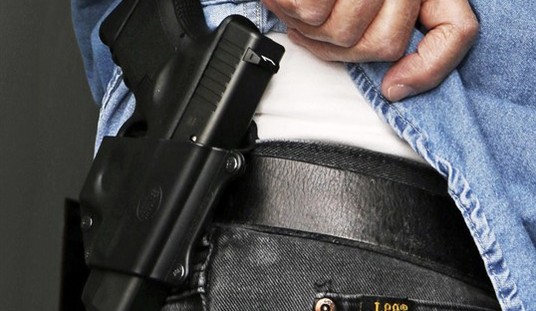It's always a welcome surprise to see support of any kind for the Second Amendment in the pages of a U.S. newspaper, so I hate to take issue with Rafael Perez's defense of AR-15s and other semi-automatic firearms. While I appreciate Perez's viewpoint, I still believe he's offering some bad advice for Second Amendment advocates when it comes to defending our right to keep and bear arms.
Perez, a doctoral candidate at the University of Rochester, argues in the pages of the Orange County (California) Register newspaper that gun owners should embrace choosing freedom over safety. I think we'd be better off making the case that bans on semi-automatic rifles and any other firearm designated as an "assault weapon" don't make us any safer, but they certainly make us less free.
Gun rights supporters may shy away from stating that they’re choosing greater freedom over the lives of fellow Americans. They may claim that their opposition to gun control is substantially motivated by preserving our ability to defend ourselves and thus, that resisting gun control is in actuality prioritizing safety.
But if we look at all of the available evidence, preserving our right to bear arms is not about safety. The US has the highest rate of gun violence among highly developed countries. Are we supposed to conclude from this that guns make us safer? It may make me as an individual safer in the event that a criminal enters my home, but it doesn’t make us safer as a society.
Instead, gun rights advocates should embrace their commitment to prioritizing freedom over safety. It’s arguably just as acceptable for a country to choose greater safety over freedom, like the Europeans have done, as it is to choose greater freedom over safety.
Unlike the European countries that Perez points to as a counter to the United States, gun ownership has been an inherent right of the people from the get-go. Most European countries never trusted the average citizen with arms, so there's never been a culture of responsible and widespread gun ownership.
The U.S., on the other hand, is home to more than 100 million gun owners and more than 400 million privately-owned firearms; including more than 20 million modern sporting rifles. Those guns are rarely used in violent crimes, to the point that FBI crime stats routinely show more homicides committed by individuals wielding fists and feet than rifles of any kind. To embrace Perez's point of view would mean accepting, at least in theory, that banning so-called assault weapons would actually make us safer when there's not much evidence that's the case.
Gun rights supporters should argue that our right to bear arms outweighs whatever improvements in safety we would get from implementing assault weapons bans like those in California. According to a 2023 study conducted by the RAND Corporation, there is little evidence that assault weapons and high-capacity magazine bans decrease mass shootings.
The lack of evidence doesn’t entail that these bans wouldn’t decrease gun violence overall. But in order to justify assault weapons bans, we need more conclusive evidence that they work and the improvement in safety must be significant.
Taken to its logical conclusion, Perez's argument could be used to promote bans on even more commonly owned firearms like handguns. Those, after all, are the firearm of choice for both lawful gun owners and violent offenders, so arguably the public safety benefit of a handgun ban would be far larger than banning "assault weapons." But the Supreme Court has already taken a handgun ban off the table in the Heller decision. Widespread criminal misuse of a firearm is simply not justification for preventing the lawful exercise of our constitutionally protected right to keep and bear arms.
Perez is ultimately arguing in favor of an interest-balancing test for our inherent right to keep and bear arms, and SCOTUS has rejected that as well. As the Court said in Bruen:
While judicial deference to legislative interest balancing is understandable—and, elsewhere, appropriate—it is not deference that the Constitution demands here. The Second Amendment “is the very product of an interest balancing by the people,” and it “surely elevates above all other interests the right of law-abiding, responsible citizens to use arms” for self-defense (quoting Heller).
As the Court went on to say, the "test that the Court set forth in Heller and applies today requires courts to assess whether modern firearms regulations are consistent with the Second Amendment’s text and historical understanding." That's the proper test to use, and a ban on so-called assault weapons fails that test. The only way courts have been able to get around that inconvenient fact is by declaring that some semi-automatic firearms should be treated as though they're machine guns; ostensibly beyond the reach of the Second Amendment. If gun owners were to actually adopt Perez's argument, it would be a huge gift to the gun control lobby, and likely would result in considerable infringements to our right to keep and bear arms.
I think Perez means well, but the question about banning commonly owned firearms isn't a choice between safety and freedom. It's ultimately about whether the Constitution means what it says or whether it can be twisted and contorted beyond any meaning whatsoever. The right of the people shall not be infringed, and it's impossible to square that edict with bans on the most popular rifles in the country.









Join the conversation as a VIP Member